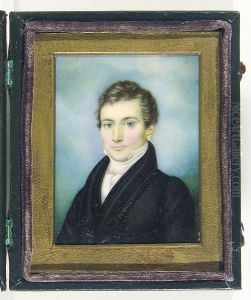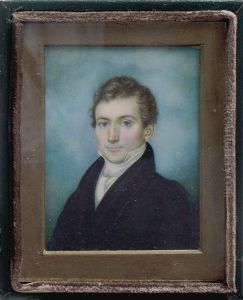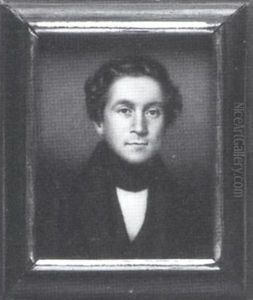Thomas Badger Paintings
Thomas Badger was an American artist known primarily for his portrait paintings. Born in 1792 in Charlestown, Massachusetts, Badger's early life and training are not extensively documented, which is common for many artists of his era. However, it is known that he was active in the Boston area and contributed to the burgeoning American art scene of the 19th century. His work falls into the broader context of American portraiture, which was evolving rapidly during this period due to influences from Europe and the unique demands of American patrons.
Badger's artistry was characterized by its adherence to the traditions of portraiture, with a focus on detailed depictions of his subjects. His portraits were known for their clarity, attention to the fine details of attire and setting, and an effort to capture the personality and status of his sitters. Like many portraitists of his time, Badger worked to convey both the likeness and the social standing of his subjects, often emphasizing attributes of wealth, profession, or family through the inclusion of specific objects or backgrounds in his compositions.
Though not as widely recognized today as some of his contemporaries, Badger's contributions to American art history are significant. His portraits provide insight into the social and cultural dimensions of early 19th-century America, reflecting both the aspirations and the realities of his subjects. His work serves as a valuable record of the period's aesthetics and social values.
After a lengthy career, Thomas Badger passed away in 1868. Despite the relative obscurity of his name in the broader narrative of American art history, his paintings continue to be studied and appreciated for their craftsmanship and historical value. His works are held in various public and private collections, serving as lasting testament to his skill and dedication to the art of portraiture.






